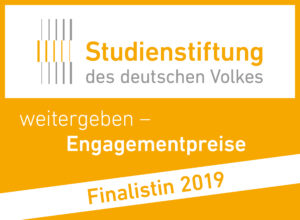Davao City Mayor Duterte Leading Polls Two Days Before Philippines Elect New President
It’s Saturday May 7 2016 – two days before the Philippine presidential elections. The Philippines is a constitutional republic in which the president enjoys extensive powers. Elected for a single six year term, he or she is not only both head of state and head of government, but also appoints and presides over the cabinet. To become president no majority of votes is needed, but the candidate with the highest number of votes wins. For the coming term 5 candidates have entered the race: current vice-president Jejomar Binay, Mar Roxas, currently Secretary of Interior and Local Government, Senator Grace Poe, Senator and former ICC judge Miriam Defensor Santiago and Davao City Mayor Rodrigo Duterte.
In the run up to the elections especially the candidacy of Mayor Duterte has received a lot of attention. With his categorical and often provoking statements Duterte has polarized the Philippine public. There are his supporters who consider him one of their own having grown up in the gutter as he puts it himself and not being part of the political dynasties as the other presidential candidates. Duterte supporters applaud his will to rid the country of crime, drugs and corruption within 6 months and appreciate his tough stand on crime – “Kill them all”[1]. He is perceived to be an honest man, who stands by his word in contrast to the traditional politicians – TRAPOs – who are symbols of widespread corruption and the resignation over politics as usual.

From a human rights point of view however, Duterte as president – if following through with his promises – would mean a drastic step back. To put it in his own words „it’s going to be bloody“[2]. Davao City, where he currently holds the position of mayor, is known for its death squads roaming the streets at night killing so called criminals – petty thieves, street children and drug addicts. When confronted with the claim of having ordered the death of 700 suspected criminals Duterte corrected the numbers to 1,700. If president, Duterte is promising the same kind of „safety“ for the whole of the Philippines. His way of fighting crime is by killing those suspected to be criminals – if necessary himself. In a radio interview in December 2015 Mayor Duterte openly admitted that he had killed three people himself before. When the Commission on Human Rights (CHR) announced its intention to investigate the EJKs in Davao City, his reaction was to threaten to close down the CHR, a constitutional body, when elected president. Most recently, he made jokes about pardoning himself for multiple murder during a speech at the Makati Business Club and simultaneously promised to sign “1,000 pardons a day” for security forces committing human rights violations such as extra judicial killings – “Pardon given to Rodrigo Duterte for the crime of multiple murder, signed Rodrigo Duterte”[3]. Rodrigo Duterte is a candidate with contempt for the concept of human rights and no respect for the democratic institutions limiting the powers of the president. Nevertheless he enjoys broad public support with the streets plastered with pro-Duterte posters. The polls currently see Duterte as the 16th president of the Philippines.
What could a Duterte presidency mean for human rights observation by IPON?
As Election Day is moving closer and polls are indicating Duterte as the leading candidate, human rights groups in the Philippines prepare for the worst. Also IPON has to consider its options in case of a Duterte presidency. The concept of human rights observation as IPON is practicing it in the Philippines is based on the premise that the state has certain obligations towards its citizens as laid down in international treaties and declarations such as the UN Declaration on Human Rights Defenders. The goal of human rights observation is to create a safer working environment for human rights defenders by addressing government bodies who are asked to act according to their duties under international law. In the worst case scenario of a dictatorship under Duterte or the renewed proclamation of martial law (as was done under Marcos in 1972) it is questionable whether this approach is still an efficient means of reducing violence against human rights defenders. Additionally, the safety of the observers itself has to be guaranteed as a top priority. With the uncertainty of elections IPON will have to reconsider its approach once election results are published.
It remains to say that May 9 will be an important day for the Philippines – it might be the day a confessed murderer and announced dictator gets elected into the highest office of the country.
[1] Inquirer (May 15, 2015). Duterte on Criminals: ‘Kill all of them’. Retrieved from http://newsinfo.inquirer.net/691527/dutertes-secret-in-keeping-davao-city-phs-safest-kill-criminals, 05/06/2016.
[2] https://www.youtube.com/watch?v=cSSsafAMTpI
[3] Time (April 28, 2016). Philippine Presidential Forerunner Duterte Says He Will Pardon Himself for Mass Murderer. Retrieved from http://time.com/4310651/duterte-philippines-murder-pardon-himself/?xid=fbshare, 05/06/2016.


